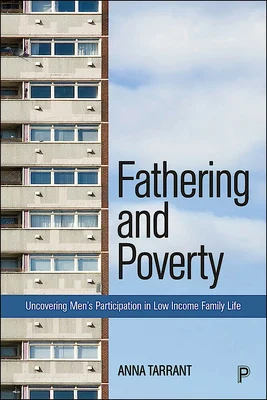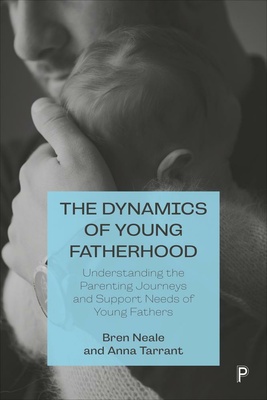Recent discussion and debate about boys and men and the ostensible crisis of masculinity affecting the nation’s boys has been difficult to avoid. Whether it be the launch of the Centre for Social Justice (CSJ)’s Lost Boys report, Gareth Southgate’s intervention on the need for male role models or the hit Netflix drama Adolescence, questions about how we support our boys have attracted intensive and diverse interest with varying takes, driven by differing perspectives and ideological positions.
It is Adolescence that, for me, has most beautifully and movingly portrayed some of the immense complexities that boys, girls, teachers and parents are now navigating in a rapidly changed and changing modern world. As a parent to a pre-teen daughter and a son, there was a huge amount to process and understand in terms of what the dangers are, who is assumed to be responsible for managing these, and how they impact our children. Programme co-writer Jack Thorne has argued that we need radical action, not just role models, to help tackle some of the issues that the programme explores. To quote a recent interview with the show’s co-creator and star, Stephen Graham, ‘it takes a village’.
The ‘problem’ of deficit language and concepts
As a social scientist who has been engaging and researching with boys and fathers for well over a decade, I find it striking that the tenor of these debates has changed very little. This is, in part, because of a long-held tendency to reduce complex social issues to a problem of gender.
A 2013 CSJ report argued that fatherlessness and ‘men deserts’ are key causes of the problems boys face. In 2025, this line of argument hasn’t changed, despite acknowledgement that boys and young men are still falling behind, in terms of access to education and training, and in terms of progressive social and political attitudes relative to girls. The report also suggests that Britain is grappling with an epidemic of family breakdown and a lack of male role models in education. The presentation of these through deficit languages not only signals a lack of something in our communities, but shames families and individuals, especially navigating hardship.
While we know from years of research that men’s involvement as fathers does matter for children’s development and longer-term outcomes, the deficit framing of absent fathers and fatherlessness, and the positioning of men as male role models, both as causes and solutions, only serves to reduce wider social problems to a question of gender.
Further, it obscures the way we live as family today, lets governments and the state off the hook and, given the endurance of such arguments, sustains the very problems that the think tank seeks to address. While there is no doubt that there are young men growing up without their biological fathers, the fatherless society is somewhat a myth when we consider wider sets of data, the impacts of austerity on family life, as well as the variety of family and other institutional roles in which men might support young men.
Finally, while there is an acknowledgement that those who are poor or ‘in the margins’ are especially at risk, there is an observable lack of analysis of the socioeconomic and policy processes that have steadily eroded family life, working conditions and opportunities, and access to youth and community spaces for young people and families in the last decade.
Researching with boys and men
As well as numerous peer-reviewed articles exploring the lived experiences of boys and men as fathers in low-income circumstances, I have published two books with Policy Press that critically explore these very issues.
Fathering and Poverty is one of the few academic texts internationally to report on qualitative research conducted with men in low-income circumstances and the professionals who support them. Where the Lost Boys report relies heavily on trend-based household data to justify that fatherlessness exists, it is only when we talk to men in these communities that we can ‘see’ them and better understand and hear their experiences. Interviews with young fathers, aged 25 and under, with single fathers and with male kinship carers (grandads, uncles and brothers who have taken on the care of their family members) reveal that they are far from absent. They are actually engaging in intense practices and processes of care and commitment for their children and wider family members, while also navigating complex systems and services to secure the resources they need to keep their families together.
The Dynamics of Young Fatherhood extends the study of young fathers further. Young fathers experience stigma because of their young age but are also more likely to be disadvantaged because they become a parent before they are able to secure the resources needed to sustain contemporary family life. Having explored their family histories, parenting journeys and support needs through over a decade of austerity and radical policy reform, we can only conclude that society is continually failing families, especially those on a low income. Based on findings generated over a ten-year period, the research demonstrates just how hard it is for young fathers to be there for their children in the ways they want to be. For young fathers, parenthood might involve navigating education and employment systems that do not recognise that students and workers might be parents, and that do not support them in that role. It is challenging to gain independence from parents because of the housing crisis, and the public health, courts and family services they encounter are more likely to sideline them or consider them a risk. These dads want to be there for their families and want to thrive, but the problems they face are systemic.
Father-inclusive societies: A call for radical reform
Both my previous and latest research involves working with and for fathers and professionals to develop methods for radical societal reform. Our evidence has supported the co-creation of father-inclusive services, systems and policies that enable dads to be dads. Examples include dads’ groups and digital support offers. Far from the deficit view on fatherlessness, our work embeds the idea of father inclusion across systems and services, a collective and collaborative approach that supports men to remain involved in family life and as caregivers.
For radical reform, there is much we can do. If we move beyond language like fatherlessness and absent dads, we are better equipped to unlock and invest in the power of family and family identities, resource communities to support parents, including dads, and involve communities in processes of change and reform.
Anna Tarrant is a UKRI Future Leaders Fellow and Professor in Sociology at the University of Lincoln.

 Fathering and Poverty by Anna Tarrant is available on Policy Press for £24.99 here.
Fathering and Poverty by Anna Tarrant is available on Policy Press for £24.99 here.
The Dynamics of Young Fatherhood by Bren Neale and Anna Tarrant is available on Policy Press for £29.99 here.
Follow Transforming Society so we can let you know when new articles publish.
The views and opinions expressed on this blog site are solely those of the original blog post authors and other contributors. These views and opinions do not necessarily represent those of Bristol University Press and/or any/all contributors to this site.
Image credit: Ben Collins via Unsplash


